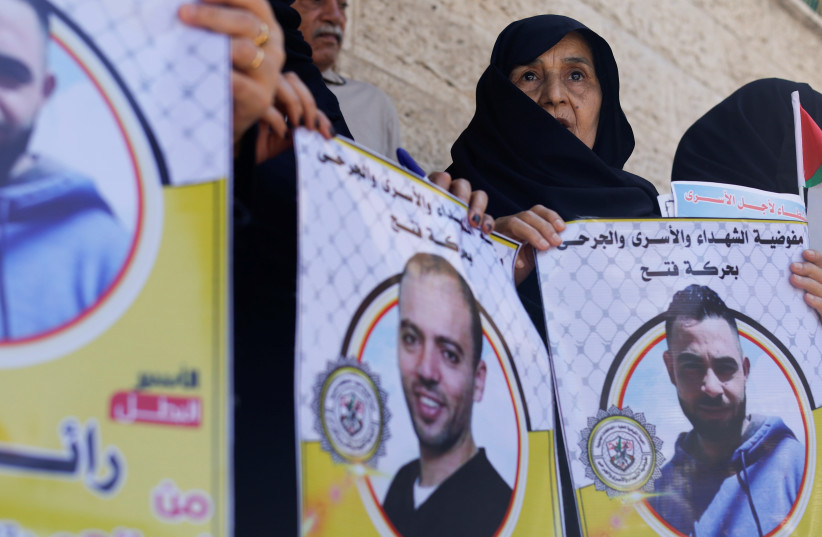Palestinian security prisoners held in Israeli jails are planning a series of measures this week to protest the alleged failure of the Israel Prisons Service (IPS) to improve their conditions.
The move could escalate tensions between Palestinians and Israel, especially in the wake of calls by several Palestinian groups to hold rallies in support of the prisoners.
What are the claims made by the Palestinians?
The prisoners claim that the IPS has failed to fulfill its previous promise to ease severe restrictions that were imposed on them in the aftermath of the jail break by six inmates from Gilboa Prison last year. The restrictions include, among other things, solitary confinement and the transfer of dozens of inmates to other prisons.
The prisoners then announced a series of protests against the restrictions and threatened to go on a hunger strike.

Last March, however, they agreed to suspend their protests after reportedly receiving a promise from the IPS to ease the restrictions.
On Sunday, the Palestinian Prisoners Club, a group that supports the security prisoners, said the inmates would resume their protests on Monday.
It said they would refuse to leave their cells for routine security checks “as a step of disobedience against the prison administration laws.”
What's next for the Palestinian prisoners?
The next stage of the protests will begin in two weeks when the prisoners are expected to go on an open-ended hunger strike.
More than 1,000 prisoners are scheduled to participate in the hunger strike, the group claimed.
Palestinian sources said the prisoners who are planning to participate in the protests belong to all the Palestinian factions, including Hamas, Palestinian Islamic Jihad and the ruling Fatah faction headed by Palestinian Authority President Mahmoud Abbas.
The sources said the prisoners formed an “emergency national committee” after the IPS imposed a number of sanctions on them in response to the Gilboa Prison jailbreak, during which six inmates escaped through a tunnel they dug inside their cell. All the fugitives were later captured by Israeli authorities.
Since then, the prisoners claim, the IPS has been moving many of them every few weeks to different prisons as part of punitive and preemptive measures designed to prevent another escape.
The Palestinian Prisoners Club called on Palestinians to support the prisoners in their struggle against the restrictions imposed by the IPS.
The planned protests come as three security prisoners are continuing their hunger strike in Israeli jails.
One of them, Khalil Awawdeh, 40, has been refusing food for nearly six months. He went on a hunger strike after he was placed under administrative detention (detention without trial). The other two hunger strikers are brothers Ahmad and Adal Musa, who are also in administrative detention.
